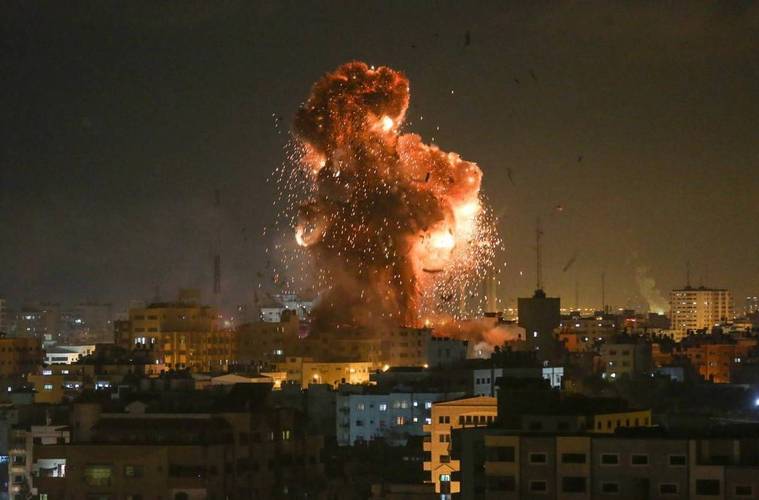
The direct military conflict that broke out between Israel and Iran from June 13th to 15th, 2025, quickly became the focus of the international community. Multiple rounds of air strikes and missile attacks by both sides have not only targeted military and nuclear facilities, but also spared civilian energy infrastructure. The scope of the conflict has also expanded to places like Yemen, bringing huge shocks and far-reaching impacts to the economy of the Middle East region.
The Middle East, as the heart of global energy, accounts for 50%, 30% and 35% of the world's total oil reserves, production and exports respectively. Iran plays a key role in it. Iran is a major oil-producing country, with a daily output of approximately 3.3 million barrels of oil and a daily export volume of over 2 million barrels of oil and fuel. It also controls the Strait of Hormuz, a global energy throat, through which about 20% to 30% of the world's seabornated oil passes. After the outbreak of this conflict, market concerns over the disruption of oil supply rose sharply, and international oil prices soared instantly. On June 13th, the price of light crude oil futures for July delivery on the New York Mercantile Exchange rose by 7.26% to close at $72.98 per barrel. The price of London Brent crude oil futures for August delivery rose by 7.02% to close at $74.23 per barrel. If Iran blocks the Strait of Hormuz due to the conflict, global oil supply will decrease by nearly 20 million barrels per day, equivalent to one fifth of global demand. At that time, the oil price is likely to exceed 200 US dollars per barrel. Citibank has warned that if the conflict gets out of control, the price of crude oil could even climb to $200 per barrel, which would completely disrupt the structure of enterprises' production costs and consumer demand. Not only that, a fire broke out in Iran's natural gas fields and some methanol plants were shut down. As the world's largest consumer of methanol, China imports a large amount of methanol from Iran every year. The conflict has led to market expectations that the volume of methanol arriving at Chinese ports will drop significantly in July, further disrupting the stability of the chemical energy market.
The sharp fluctuations in the energy market have also triggered intense panic in the financial market, and investors' risk-averse sentiment has risen sharply. The stock markets in the Middle East were the first to be hit. On June 15th, the Israeli stock market opened down 1.7%, the Saudi benchmark index plunged 3.6%, marking the biggest drop in more than a year, and the Egyptian EGX30 index plunged 7.7%. The exchange rate of the Israeli currency, the shekel, against the US dollar once dropped by 3%, and the prices of government bonds also fell, resulting in a "triple hit" of stocks, bonds and foreign exchange. Gold, as a traditional safe-haven asset, is highly favored and its price has risen sharply. After Israel's attack on Iran on June 13th, gold futures rose sharply. London gold is now above $3,440 per ounce, reaching a new high since April 22nd. Global funds have been withdrawing from risky assets and flowing into safe-haven assets such as gold and US Treasury bonds, pushing down the yield on the 10-year US Treasury bond and causing a large outflow of capital from emerging markets. As a global reserve currency, the US dollar becomes more attractive when risk appetite declines. The US dollar index rises, while the local currencies in the Middle East are under dual pressure of capital outflows and rising local financing costs.
While the financial market is experiencing severe fluctuations, the unstable situation in the Middle East has also seriously affected trade exchanges within the region and with other countries. Israel and Iran, as important economies in the region, have seen their foreign trade hindered by conflicts, and the trade environment in neighboring countries has also deteriorated sharply. The global supply chain has also been hit. As the main shipping route between Asia and Europe, the Red Sea, with its tense situation, may lead to shipping disruptions and a significant increase in transportation costs and time. Merchant ships passing through this area need to increase war insurance costs, and some vessels may even be forced to change routes or suspend operations. This has a significant impact on industries such as manufacturing and retail that rely on the transportation of raw materials and goods from the Middle East. The global supply chain is at risk of disruption, prompting international enterprises to accelerate the diversification and decentralization of their supply chains and reduce their reliance on a single region in the Middle East.
The current conflict between Israel and Iran has brought all-round and deep-seated trauma to the economy of the Middle East region. The instability of energy prices, the turmoil in financial markets and the disruption of trade supply chains have made the already fragile Middle East economy even worse. If the conflict persists or escalates further, the Middle East economy and even the global economy will face more severe challenges, and the peaceful settlement of the conflict is extremely urgent.

報告顯示,中國電力投資加速增長,預計2024年電網基建投資將超過5300億元。
近日,市場迎來了一則引人注目的消息:工業巨頭3M公司(MMM.N)在本周五公布了其季度業績報告,隨後股價飆升至近兩年來的
最近,外媒給OpenAI算了筆賬,今年可能要血虧50億美元。
近日,巴黎奧運會和世界鐵人三項協會聯合發布了一項重大決定,宣布因塞納河水質污染問題,原定於近期進行的奧運會鐵人三項首次下
當地時間7月18日,法國巴黎發生了一起令人震驚的持刀襲警事件。
近期,一則重大消息在國際舞臺上引起軒然大波,馬來西亞宣布加入金磚國家。
調查發現,互聯網和智能手機的使用幹擾了韓國近五分之一學生的生活。